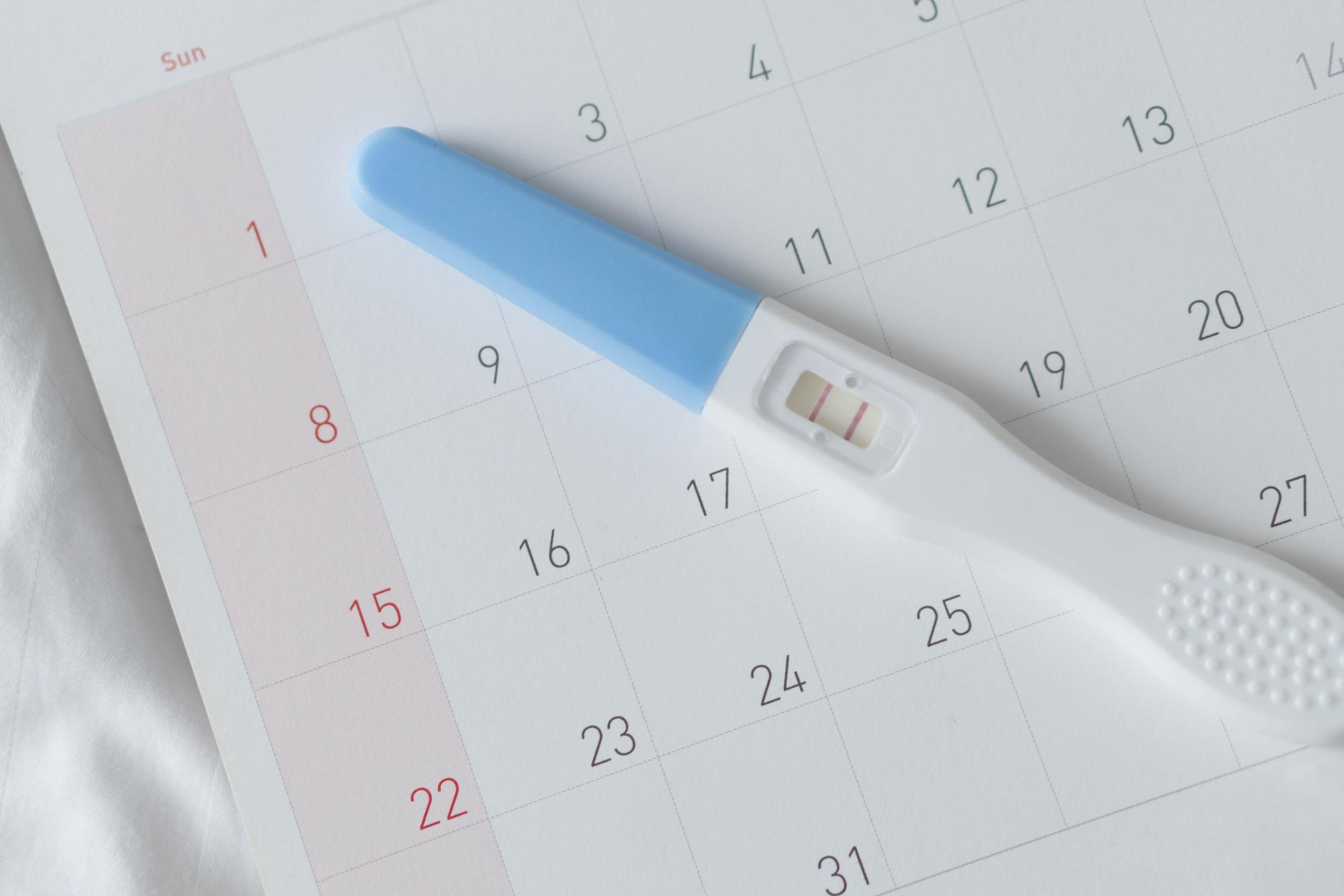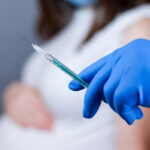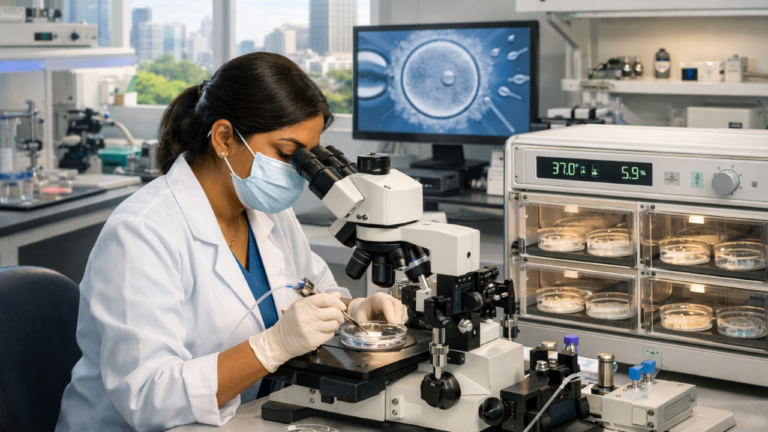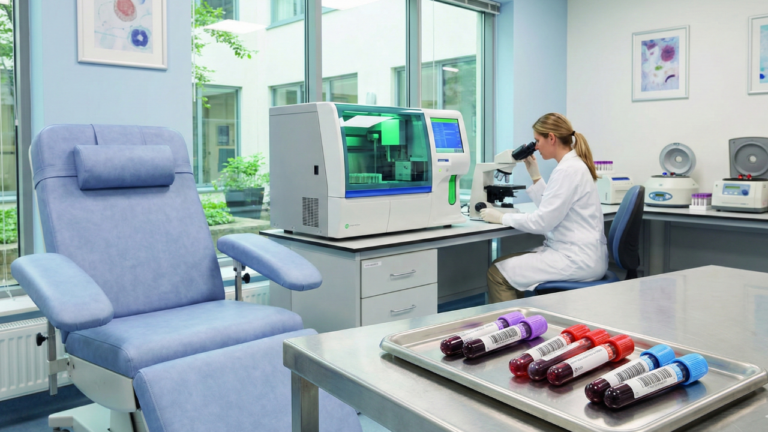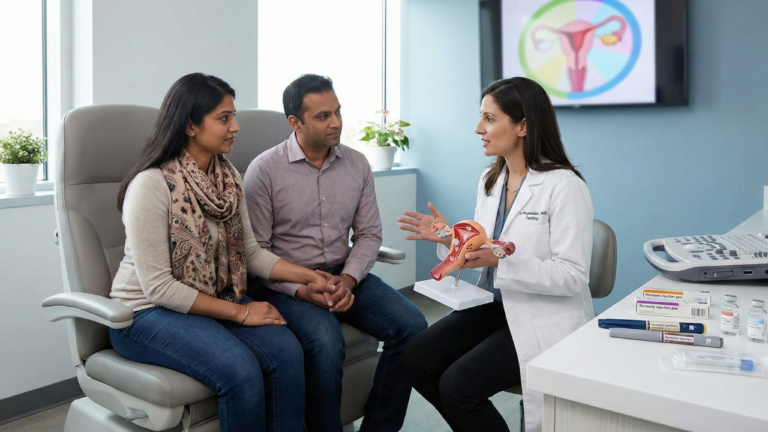The hardest part of your IVF experience might be waiting to take an early pregnancy test. A frozen embryo transfer takes only 2-4 hours, but the wait afterward can seem endless. Your fertility clinic will likely recommend a “two-week wait” after your embryo transfer. Testing too soon can give you misleading results. Your body needs time to build up detectable levels of the pregnancy hormone hCG. Medical experts suggest waiting 10 to 14 days after an IVF transfer before taking a pregnancy test.
You might feel tempted to test earlier during this waiting period. Keep in mind that early pregnancy often doesn’t produce enough natural hCG, which could give you a false-negative result. Your doctor will schedule a blood test 10 to 14 days after the egg retrieval to measure your hCG levels accurately. This piece will help you understand the post-transfer testing timeline, recognise important signs, and pick the right pregnancy test for your needs.
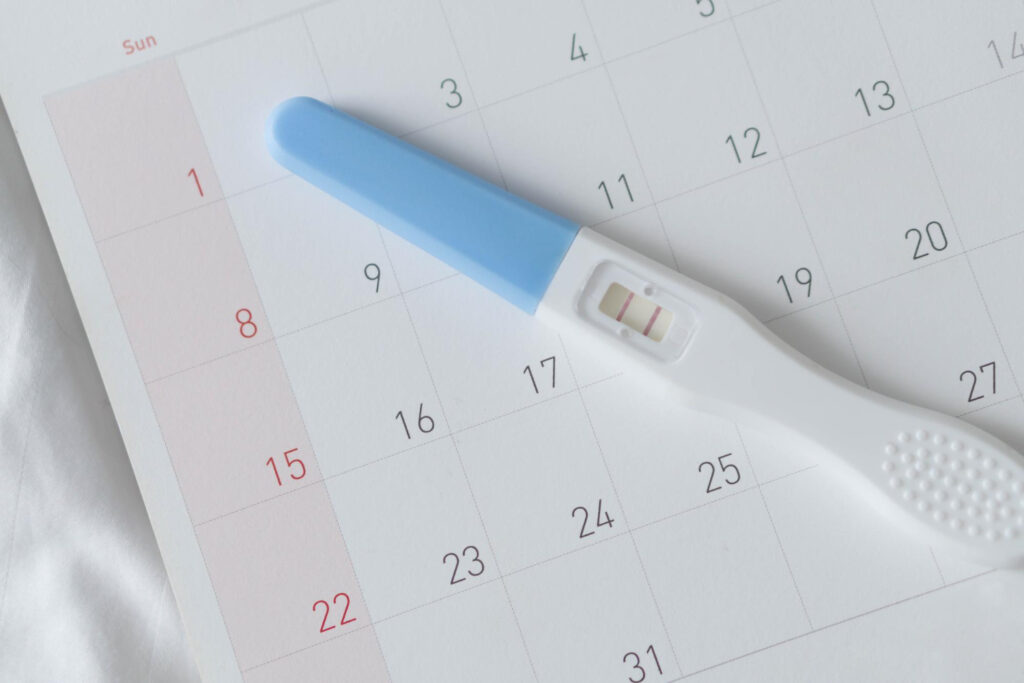
Understanding the IVF Timeline
The embryo transfer process starts a vital biological sequence. Your body follows a specific timeline after a blastocyst transfer:
- Days 1-2: The blastocyst hatches from its shell and begins attaching to your uterus
- Days 3-4: The embryo attaches deeper into the uterine lining as implantation progresses
- Day 5: Implantation completes, with cells developing into future placenta and foetus
- Day 6: Human chorionic gonadotropin (hCG) hormone starts entering your bloodstream
- Days 7-8: Foetal development continues while hCG secretion increases
- Day 9: hCG reaches levels potentially detectable by a blood test
Most fertility specialists recommend waiting at least until day 9 post-transfer for a blood test. Home pregnancy tests after IVF embryo transfer are nowhere near as reliable as blood tests because they detect hCG in urine. You’ll need 10-14 days to confirm pregnancy accurately. Early testing might give false results for two main reasons:
- Residual hCG from trigger injections might still be present
- Your body needs time to produce detectable hCG levels
Women experience different symptoms during this waiting period, but these symptoms don’t necessarily indicate success or failure.

Early Signs to Watch For
Many women watch their bodies closely for positive signs during the two-week wait after embryo transfer. You might feel mild cramps that feel similar to period pain. These cramps usually show up 2-3 days after transfer and may return during implantation (6-10 days post-transfer). Light spotting or bleeding between 6-12 days after transfer could be a good sign. It might mean your embryo has successfully attached to your uterine wall. On top of that, it’s common to have tender or sore breasts because of hormone changes.
Your body’s rising progesterone levels might make you feel unusually tired. You could also find yourself running to the bathroom more often as your body adapts to early pregnancy changes. Changes in vaginal discharge are possible too. If you’re pregnant, it’s usually thin, white, and mild-smelling. In spite of that, about 10-15% of women get pregnant without feeling any symptoms at all. Having no symptoms doesn’t mean the transfer failed.
Your symptoms can be unique to you and hard to tell apart from medication effects. The early signs you notice often come from progesterone supplements and other IVF medications rather than pregnancy. Don’t wait to call your doctor if you have severe stomach pain, heavy bleeding, feel dizzy, or have a fever.
Types of Pregnancy Tests After IVF
Getting accurate results after IVF depends on picking the right pregnancy test. Blood tests and home urine tests show key differences in how reliable they are and when to use them.
- Blood Tests (Beta hCG) Blood tests stand as the gold standard to confirm pregnancy after IVF procedures. These quantitative tests measure your bloodstream’s exact hCG hormone levels. Most fertility clinics schedule this test 7-14 days after embryo transfer. Blood tests can detect hCG levels as low as 5 mIU/ml, making them substantially more sensitive than home tests. These tests give numerical values instead of simple yes/no results, which helps doctors track early pregnancy’s progress.
- Home Pregnancy Tests Home pregnancy tests offer convenience but can give misleading results for IVF patients. We noticed this happens because fertility medications leave residual hCG in your system, which might cause false positives. Testing too soon could also show false negatives when hCG levels haven’t built up enough. Home tests only detect hCG levels of 75-100 mIU/mL or higher, while blood tests pick up much lower amounts.
- Confirmatory UltrasoundsPositive blood tests lead to ultrasounds as the next step, which clinics usually schedule 3-4 weeks after embryo transfer. These scans confirm pregnancy by showing the gestational sac and later the baby’s heartbeat.
Your fertility clinic will need blood testing to confirm results, whatever your home test shows.
Conclusion
The IVF testing experience will test your patience. The 10-14 day wait after embryo transfer feels tough, but your body needs this time to produce enough hCG for accurate test results.
Testing too early can give you misleading results and cause emotional stress. Blood tests are the quickest way to confirm pregnancy since they detect much lower hCG levels than home pregnancy tests. Your fertility clinic’s scheduled blood work gives you the definitive answer you need, even though home tests are accessible to more people. Women going through IVF treatment experience different physical symptoms. Some have mild cramping, breast tenderness, fatigue, or light spotting. Others show no symptoms at all but still get pregnant. These signs usually come from progesterone supplements rather than pregnancy.
Positive blood tests mark the beginning of your next milestone – ultrasound scans scheduled 3-4 weeks after transfer. Until then, take care of yourself during this emotional waiting period. The two-week wait is one of the hardest parts of your fertility experience. All the same, you can guide yourself through this time with more confidence when you understand the biological timeline, recognise early signs, and know which tests work best.
Key Takeaways
Understanding the optimal timing for IVF pregnancy testing can reduce anxiety and prevent misleading results during your fertility journey.
- Wait 10-14 days after embryo transfer for accurate results, as testing earlier often produces false negatives due to insufficient hCG levels.
- Blood tests are significantly more reliable than home pregnancy tests, detecting hCG levels as low as 5 mIU/ml compared to 75-100 mIU/ml for home tests.
- Early symptoms like cramping, spotting, or breast tenderness vary greatly between women and often result from IVF medications rather than pregnancy itself.
- Around 10-15% of successful IVF pregnancies show no early symptoms at all, so absence of signs doesn’t indicate failure.
- Residual hCG from fertility medications can cause false positives on home tests, making clinic-scheduled blood work essential for confirmation.
The two-week wait remains one of the most challenging aspects of IVF, but following proper testing protocols and understanding your body’s timeline will help you navigate this period with realistic expectations and greater peace of mind.
FAQs
Q1. When is the ideal time to take a pregnancy test after IVF? The optimal time to take a pregnancy test after IVF is typically 10 to 14 days after the embryo transfer. This waiting period allows for more accurate results, as it gives your body sufficient time to produce detectable levels of the pregnancy hormone hCG.
Q2. Are home pregnancy tests reliable for IVF patients? Home pregnancy tests are less reliable for IVF patients compared to blood tests. They may produce false positives due to residual hCG from fertility medications, or false negatives if taken too early. Blood tests conducted at your fertility clinic are more accurate and can detect lower levels of hCG.
Q3. What early signs might indicate a successful IVF pregnancy? Early signs of a successful IVF pregnancy may include mild cramping, light spotting, breast tenderness, fatigue, and increased urination. However, it’s important to note that these symptoms can vary greatly between individuals and may also be caused by IVF medications rather than pregnancy itself.
Q4. Is it normal to have no symptoms after an IVF embryo transfer? Yes, it’s entirely normal to have no symptoms after an IVF embryo transfer. In fact, about 10-15% of women who achieve pregnancy through IVF experience no early symptoms at all. The absence of symptoms does not indicate failure.
Q5. How soon after IVF can a blood test detect pregnancy? A blood test can typically detect pregnancy as early as 9 days after the embryo transfer. However, most fertility clinics schedule this test between 10 to 14 days post-transfer for more reliable results. Blood tests can detect hCG levels as low as 5 mIU/ml, making them significantly more sensitive than home urine tests.
